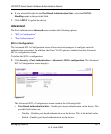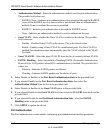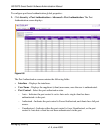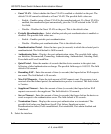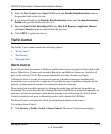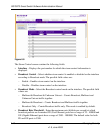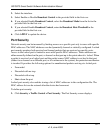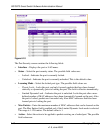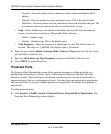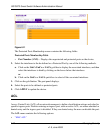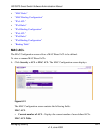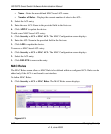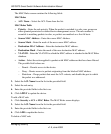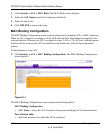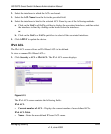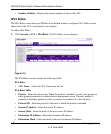
GS700TS Smart Switch Software Administration Manual
Managing Security 6-19
v1.0, June 2009
– Forward – Forwards packets from an unknown source without learning the MAC
address.
– Discard – Discards packets from any unlearned source. This is the default value.
– Shutdown – Discards packets from any unlearned source and shut down the port. The
port remains shut down until reactivated or until the device is reset.
• Trap – Select whether traps are enabled or disabled when a packet from an unknown
source is received on a locked port. The possible field values are:
– Enable – Enables traps.
– Disable – Disables traps. This is the default value.
• Trap Frequency – Enter the frequency at which traps are sent. The field format is in
seconds. The range is 1-1,000,000. The default value is 10 seconds.
2. Select the port security Status, Learning Mode, Action and Trap status from the lists in the
provided fields in the first row.
3. Enter the Max Entries and Trap Frequency in the provided fields in the first row.
4. Click APPLY to update the device.
Protected Ports
The Protected Ports Membership screen allows network managers to define protected port
membership. Protected ports isolates Layer 2 traffic between interfaces that share the same
Broadcast domain. The isolated ports are defined as protected ports and can forward traffic to
unprotected ports, but not to other protected ports. Undefined ports are perceived as unprotected
and can send traffic to any port; whether protected or unprotected. The default configuration is
unprotected.
To define protected ports:
1. Click Security > Traffic Control > Protected Ports > Protected Ports Membership. The
Protected Ports Membership screen displays:



